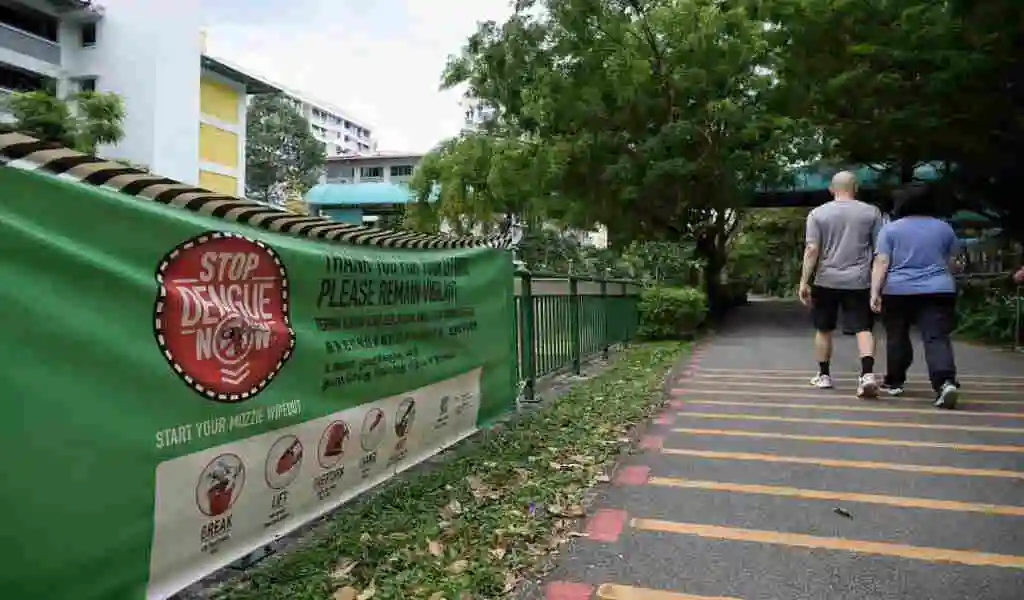Health
Dengue Cases In 2022 Likely To Be Second Highest Ever

(CTN News) – According to the National Environment Agency (NEA) website, the number of dengue cases in Singapore in 2022 is set to be the second highest on record.
A total of 32,097 dengue cases had been reported as of 3pm on Dec 30 – 91 percent of the 35,315 cases recorded in 2020. 221,170 cases were recorded in 2013, the previous annual record high.
NEA previously blamed the high number of cases in 2022 on the DenV-3 strain of dengue virus against which the population here has low immunity.
A high number could also be due to other factors, observers said.
Temperature changes and climate conditions may have led to a heightened number of mosquitoes here. This is according to dengue expert Tikki Pang of the Yong Loo Lin School of Medicine at the National University of Singapore.
It is possible that increased freedom of movement has led to more mosquito bites since Covid-19 restrictions were loosened.
Prof Pang suggests that construction activity may have been higher in 2022 than in the pandemic years of 2020 and 2021, which would result in more mosquito breeding sites.
It is easier to diagnose dengue patients now than 20 years ago, according to the Saw Swee Hock School of Public Health’s vice-dean of research Alex Cook.
The number of dengue cases in 2023, however, is nearly impossible to predict, according to experts.
Prof Pang said that the number of infections would depend on factors such as climate conditions and the success of mosquito control programs.
Singapore reported 5,258 dengue cases in 2021.
Prof Pang noted that dengue cases fluctuate annually because the disease is affected by climate change.
It is common for dengue epidemics to occur seasonally, with more cases found during the wetter and warmer months. A number of factors affect the fluctuations we see, such as rainfall amounts and temperature gradients in any given year.
Professor Duane Gubler, who chairs the dengue expert advisory panel and is an emeritus professor at Duke-NUS Medical School, noted that even though dengue incidence is usually lower after an epidemic, that could change if a strain that has not circulated for a while returns to the scene.
The most promising change to Singapore’s approach to dengue is Project Wolbachia, which releases male mosquitoes carrying the Wolbachia bacteria in high-risk areas.
If Wolbachia-infected males mate with females, their eggs will not hatch.
He believes there are big holes in the distribution map where Wolbachia is already installed.
It is also planned to expand the initiative to other parts of the country.
Approximately 31 percent of all Housing Board blocks are covered by the project.
The majority of dengue deaths in Singapore occur among those 65 and older, Prof Pang noted.
Previously, he proposed expanding the use of Dengvaxia – a vaccine approved here since 2016 – among seniors.
A new dengue vaccine developed by Japanese company Takeda Pharmaceutical was approved for use in the EU in December.
Are dengue cases rising?
The rising caseload has pushed up hospital admissions, The Times of India reported. Kerala saw the highest dengue toll (20) in the country and had over 7,000 cases by October 18, 2022.
Uttar Pradesh recorded more than 18,000 cases since the beginning of 2022, according to the state health department.
SEE ALSO:
COVID Vaccine Is Safe For Kids With Rare Complications





























